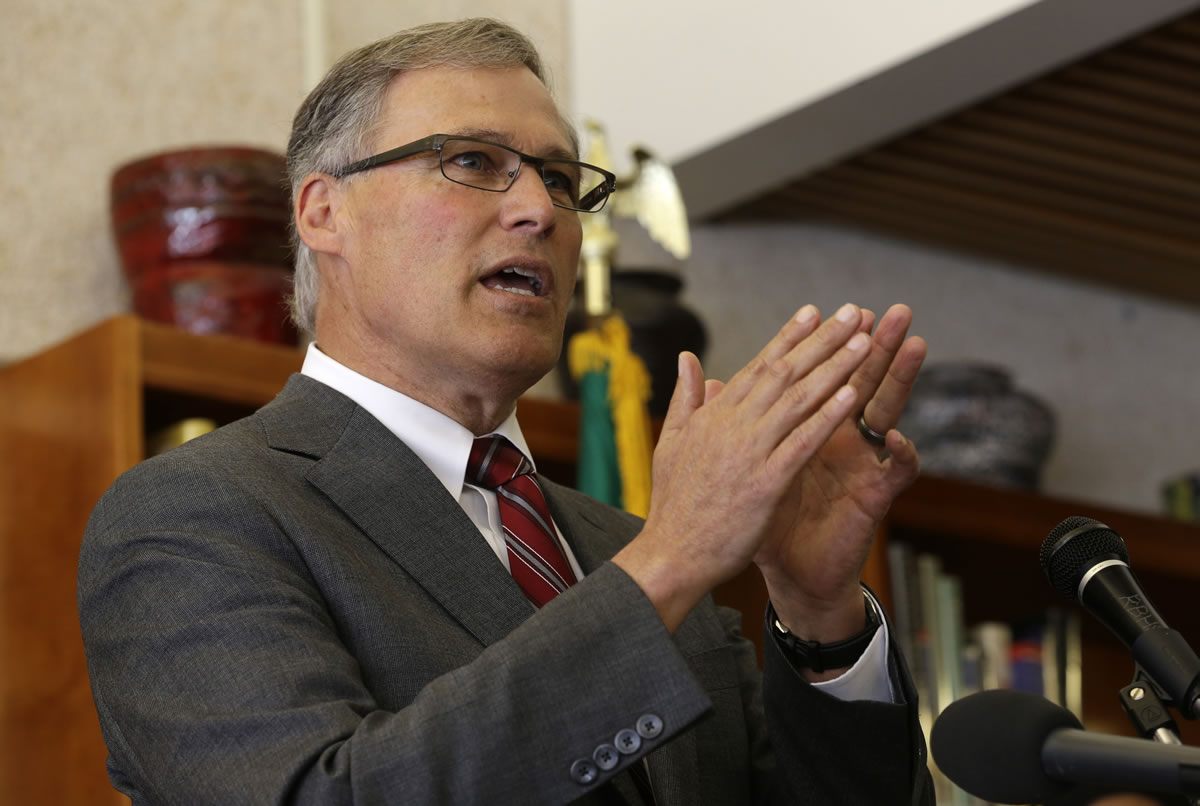The wide-ranging jobs plan Gov. Jay Inslee pitched while running for governor is still a work in progress, but some of his ideas are taking shape at a state agency he dubbed “dysfunctional” on the campaign trail.
Inslee proposed a new agency focused solely on economic development that would coordinate business outreach across state government. Under his plan, the Office of Economic Competitiveness and Development would have an ambassador to each of the industries Inslee saw as economic engines.
That office now exists, even if it’s different from the campaign blueprint in ways both minor — its name transposed into the Office of Economic Development and Competitiveness — and major — it’s housed within the Department of Commerce rather than on its own.
Inslee’s campaign proposals included pulling apart Commerce, the economic-development, housing and infrastructure agency where he saw too many different missions. Inslee now says Commerce Director Brian Bonlender, his former congressional and campaign aide, is moving “to make the agency more nimble” and help economic innovators.
The Democratic governor said Thursday that he would need legislators’ agreement to divide the agency and that he has bigger fish to fry in for the Legislature this year, but might return to the idea.
Inslee can expect interest from Republican Sen. John Braun, of Lewis County, who chairs the Senate Committee on Economic Development. Braun said he, too, is inclined toward splitting off a separate agency to focus solely on jobs.
In the meantime, Bonlender is pushing to consolidate and restructure Commerce.
Outreach to Industry
In keeping with Inslee’s strategy of focusing on specific sectors, Bonlender hopes to have “sector leads” for the aerospace, agriculture, clean technology, life sciences, maritime, information technology and advanced manufacturing industries, and the military.
Neither House nor Senate budgeted money to hire leads, but Inslee said he would keep pushing. Some money would come from the private sector while some sector leads would be existing officials at other agencies.
“The whole idea behind having these sector leads is, we have somebody that wakes up in the morning every day thinking about what it takes to make our state competitive in these industries,” Bonlender said.
For example, he said, a military sector lead could have recently helped Spokane-area community leaders and the governor’s office in an ongoing effort to relocate residents of an area near the Fairchild Air Force Base runway, making the base more appealing to the Pentagon. The Air Force chose a Kansas base instead for its new KC-46A refueling tankers.
GOP campaign rhetoric was critical of industry-specific strategies as picking winners and losers. But Braun said the sectors Inslee is proposing capture the breadth of the state’s economy and are a move in the right direction.
One hurdle, though: Legislative Republicans tend to favor easing regulations on companies over new outreach to them.
“To go too far down that path till you do real work on business climate, I think is not a wise use of taxpayer money,” said Braun, citing workers compensation costs as a better goal.
But he and Inslee agreed the state can do both. The governor said he was on the phone Wednesday with environmental agencies to help a company that has a permitting problem standing in the way of expansion, while his Department of Ecology is working on streamlining permitting through lean management.
Lean management, cutting waste in business practices, is a staple of Inslee’s campaign, and is being applied within Commerce.
Braun said he’s committed to working with Bonlender, but Republican Sen. Michael Baumgartner of Spokane said that his constituents and others saw Bonlender’s appointment as “a political payoff.”
“I’d be surprised,” Bonlender said in reaction, “if anybody wanted to make economic development a partisan issue.”



